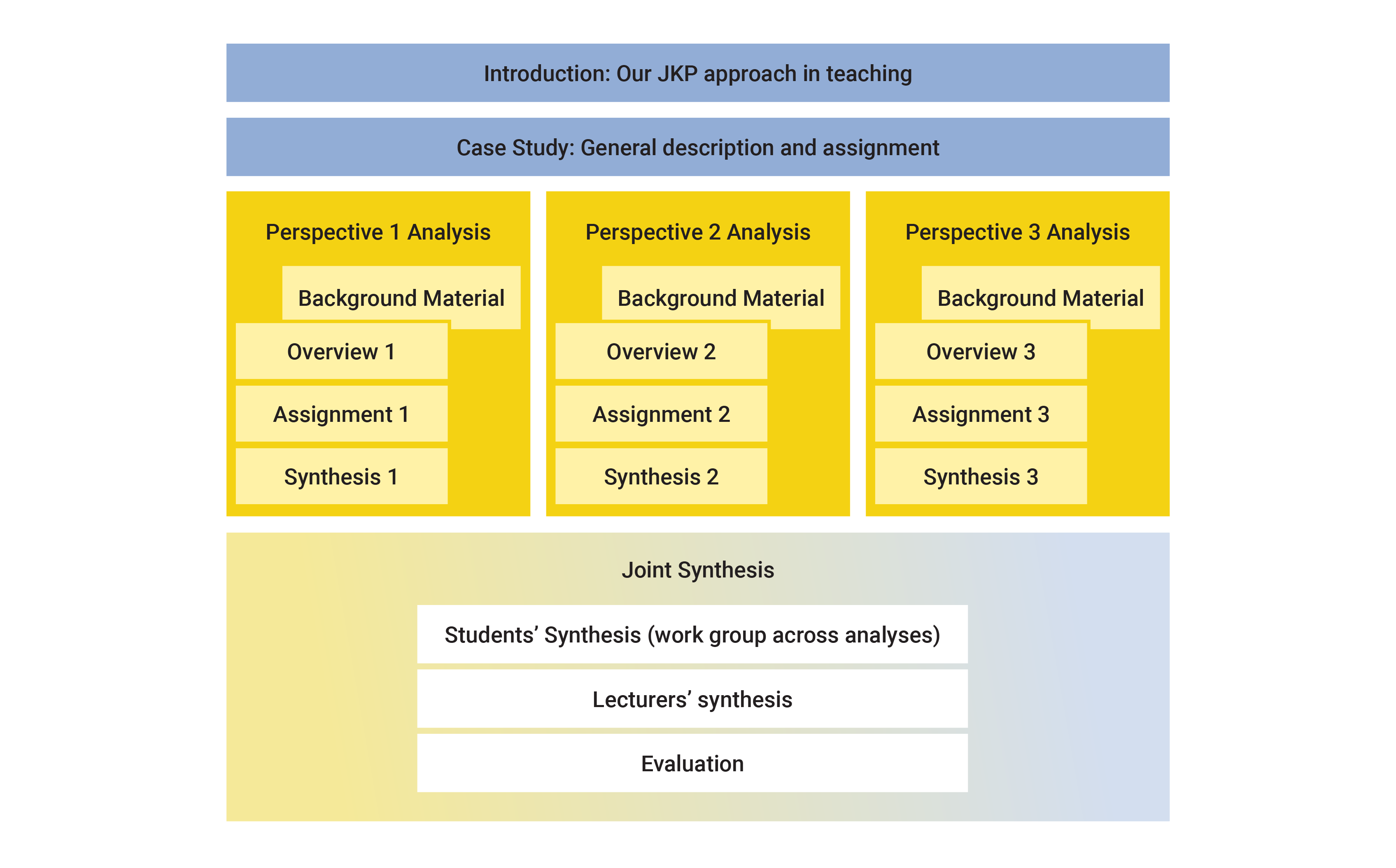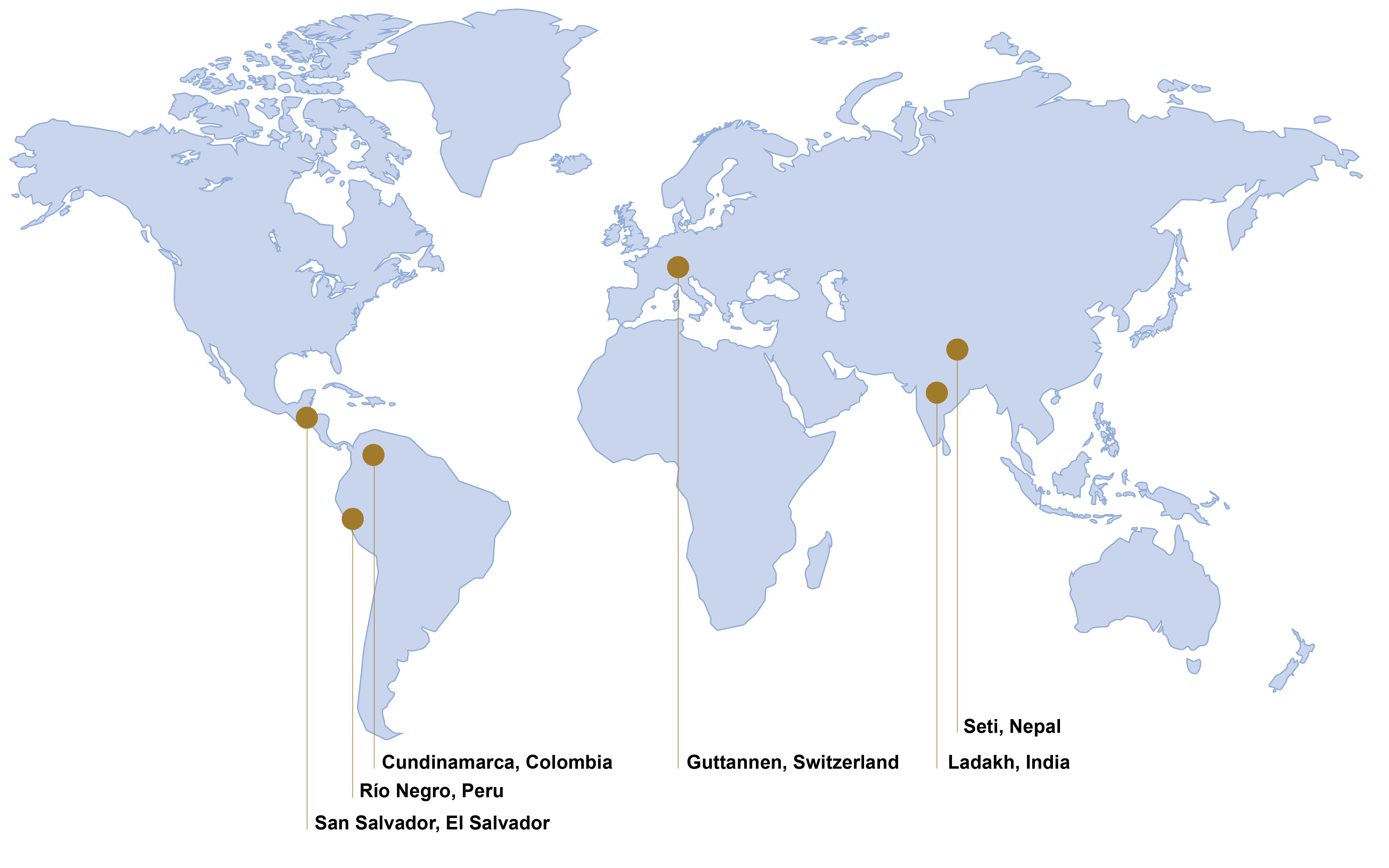Learning about climate change adaptation from case studies
Our network uses case studies to teach about climate change adaptation. A case study is an instructional method that focuses on problem analysis, problem synthesis and decision-making. Our goal is that students learn to look at the problem (case) from different perspectives, how to interlink the knowledge gained from each perspective, and how such knowledge can be applied and implemented to understand climate change adaptation in their respective context.
Our didactic approach
In order to use our case studies in the classroom, we have developed a didactic approach that consists of four steps: an introduction to our JKP approach in research and teaching, a general description of the case study (including a general assignment), a perspective analysis, and a joint synthesis.

Our case studies
We have selected six case studies to examine climate change adaptation using a joint knowledge production approach. The case studies are based on previous or current research and cover a wide range of geographical, social, environmental and economic conditions, as well as different types of risks/impact in urban and rural settings. Given their wicked nature, the cases require an analysis from several perspectives (e.g. ethics, natural sciences, social science) and a joint perspective, in line with the concept of joint knowledge production.

